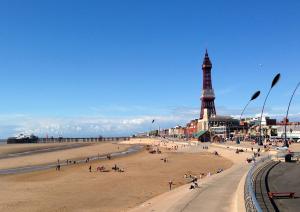Report: Seaside towns suffering due to poor broadband connectivity
 British seaside towns are being let down and “killed off” by poor and unreliable access to broadband, a new report has warned.
British seaside towns are being let down and “killed off” by poor and unreliable access to broadband, a new report has warned.
The Regenerating Seaside Towns study, commissioned by the House of Lords Select Committee, revealed that coastal towns, which thrived in the 19th century as pleasure resorts and leisure destinations, were being left behind as a result of substandard internet connectivity.
According to the committee, such towns have faced too much neglect and ought to be “celebrated as places that can provide attractive environments for residents and visitors.”
However, many councils managing the seaside towns claimed they were being ignored in favour of urban areas when it came to investment.
The report stated: “It was suggested that investment in mobile and broadband infrastructure in coastal communities lagged considerably behind that being made in urban areas and that this was worsening the economic disadvantages already being felt in these communities.”
To combat this, the committee has urged the government and ministers to foster new initiatives and funding campaigns to boost digital connectivity to “overcome the challenges of peripherality in coastal areas.”
This advice comes in addition to boosting transport networks to encourage movement and tourism in these towns.
The report comes in response to Chief Technology Officer at Ofcom, Mansoor Hanif, calling for innovation and technological diversity in rural towns to generate and improve economic productivity. The key to achieving this was fast and reliable broadband network.
As a concluding statement, Lord Lucas in the report said: “Seaside towns are often remote, disconnected from large scale economic activity […] if we work to connect them better, in a multiplicity of different ways, good consequences should flow.
“High-quality broadband connections should be our first priority in attracting new economic activity to seaside towns and connecting them with the rest of the country and beyond. Many experiences and services that are on the doorsteps of people living in metropolitan areas seem unfeasibly distant in [coastal communities].”







